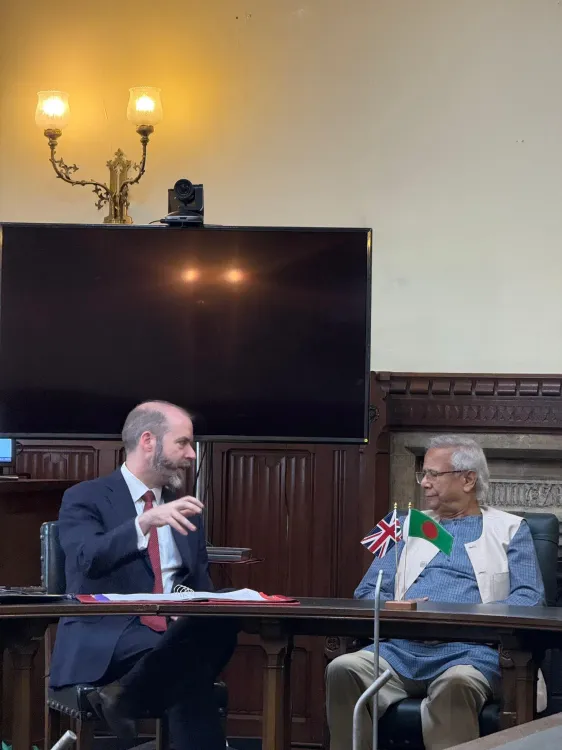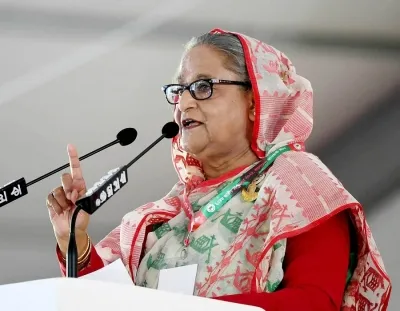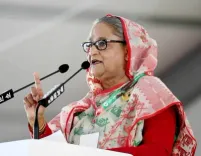Why Did British PM Decline Meeting with Bangladesh's Yunus?

Synopsis
Key Takeaways
- UK PM Keir Starmer has declined to meet with Yunus.
- Protests erupted during Yunus's UK visit, showcasing opposition.
- The Awami League has urged UK officials not to recognize Yunus's administration.
- Concerns over human rights and political repression in Bangladesh are rising.
- The situation highlights the complexities of international diplomacy.
London, June 12 (NationPress) In a significant diplomatic setback, British Prime Minister Keir Starmer has reportedly declined to meet the Chief Advisor of Bangladesh's interim government, Muhammad Yunus, who is presently in the United Kingdom.
According to various media reports, UK government officials have confirmed that Starmer has no intention of meeting Yunus, although they refrained from providing additional comments.
During his visit, Yunus did meet with UK National Security Advisor Jonathan Powell at his hotel on Wednesday.
Bangladesh's local media has shown considerable enthusiasm regarding Yunus's visit to the UK, widely publicizing his anticipated meeting with the British Prime Minister.
However, in a recent interview with a British newspaper, Yunus acknowledged that Starmer had not yet consented to meet him.
As Yunus commenced his four-day visit on Tuesday, hundreds of protestors gathered outside Heathrow Airport and at a central London hotel where he is staying.
The demonstrators waved black flags and held banners proclaiming, “Yunus is a killer of freedom fighters of Liberation War,” while chanting slogans like ‘Go back Yunus,’ accusing him of fostering militancy and radicalism in Bangladesh.
Many protestors also called for the immediate release of detained Hindu priest Chinmoy Krishna Das, insisting that it should be Yunus facing trial instead.
Eyewitnesses reported that demonstrators, primarily from the Awami League and Bangladeshis who fled the country since Yunus took power ten months ago, even threw shoes and eggs at his convoy as it traveled from the airport to the hotel.
A formal letter from the Awami League's UK branch was also dispatched to Downing Street, the Speaker of the House of Commons, the King's Foundation, and the Commonwealth Secretariat, urging British officials not to recognize the Yunus administration.
The letter expressed that at a period when Bangladesh is facing economic downturn, increasing political oppression, and rising human rights violations—especially against women and girls—the UK government's engagement with Yunus could send a detrimental message concerning the importance of democracy and the rule of law.









